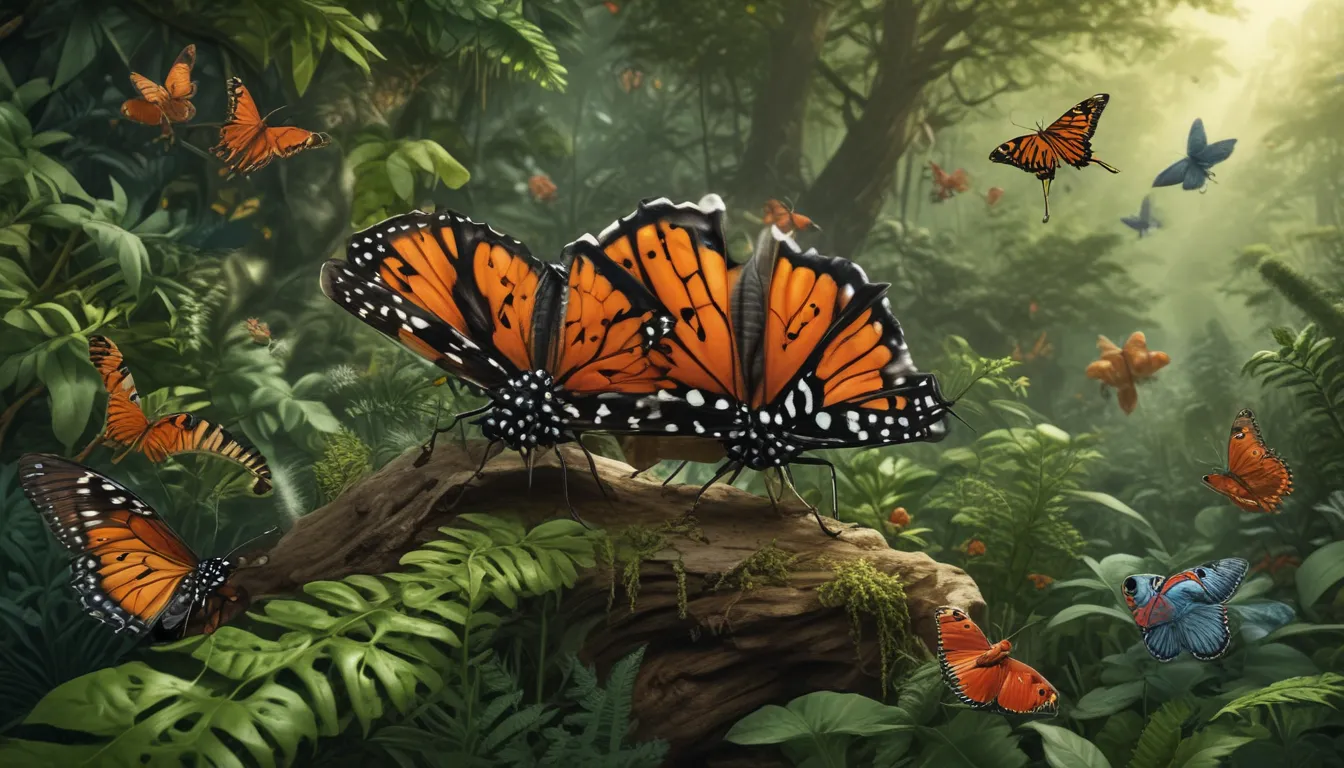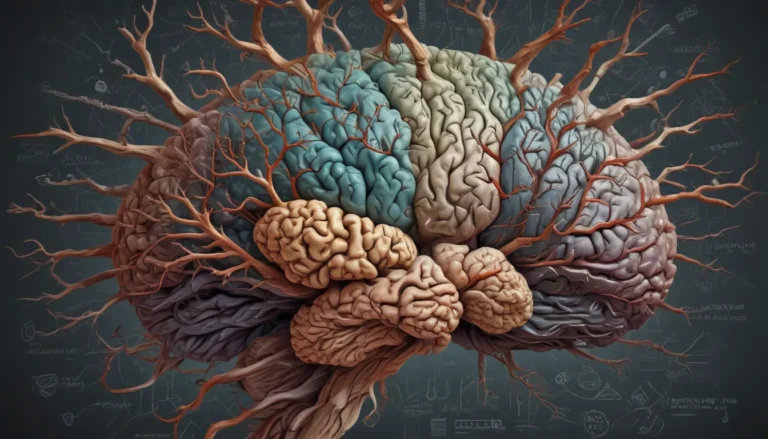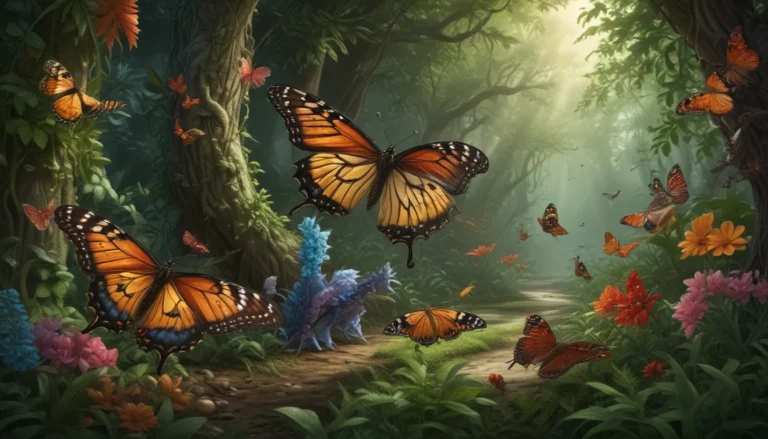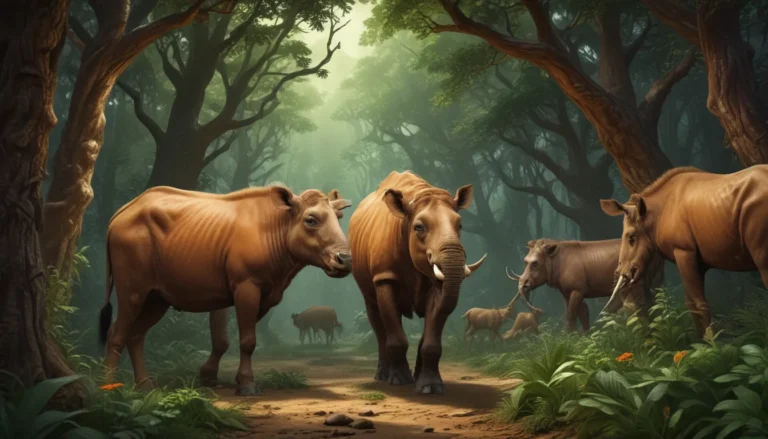A Note About Images: The images used in our articles are for illustration purposes only and may not exactly match the content. They are meant to engage readers, but the text should be relied upon for accurate information.
Biodiversity, the intricate variety of life on Earth, is a marvel that sustains our ecosystems. From the grandeur of the Amazon rainforest to the smallest oceanic organisms, biodiversity is a cornerstone of our planet’s health and balance. In this article, we will delve into 15 astounding facts about biodiversity that will leave you spellbound and emphasize the importance of preserving and safeguarding the diverse life forms on Earth.
Understanding the Essence of Biodiversity
- Biodiversity is akin to a sprawling family encompassing plants, animals, and minute creatures, playing a vital role in maintaining the health and equilibrium of our planet.
- Humans are both contributors to and protectors of biodiversity; through learning from nature and collaborative efforts, we can ensure the survival of Earth’s incredible array of life forms.
The Fascinating World of Biodiversity
Biodiversity and Ecosystem Stability
Each species within a diverse ecosystem fulfills a unique role, allowing for better resilience to environmental changes and quicker recovery from disturbances.
The Amazon Rainforest: A Biodiversity Hotspot
Home to millions of species including plants, animals, and insects, the Amazon Rainforest boasts the highest concentration of biodiversity on Earth, showcasing the richness of life.
Coral Reefs: Diverse Marine Ecosystems
Covering a small fraction of the ocean floor, coral reefs are home to approximately 25% of all marine species, exemplifying the incredible diversity thriving beneath the waves.
The Mystery of Undiscovered Species
More than 80% of the world’s known species are yet to be discovered or identified, emphasizing the need for continued exploration and research to uncover Earth’s hidden biodiversity.
The Vitality of Biodiversity Ecosystem Services
From pollination to nutrient cycling, water purification, and pest control, biodiversity provides essential services critical for human well-being and the health of our environment.
Biodiversity: A Source of Medicinal Discoveries
Many pharmaceuticals are derived from natural compounds found in plants and animals, underscoring the importance of biodiversity for medical advancements and treatments.
The Impact of Human Activities on Biodiversity Loss
Habitat destruction, pollution, overexploitation, and climate change are key drivers of biodiversity decline, emphasizing the urgent need for conservation efforts.
The Role of Forests in Biodiversity Conservation
Forests offer vital habitat for a multitude of species and assist in climate regulation, making them indispensable for the preservation of biodiversity.
The Acceleration of Extinction Rates
Human activities have precipitated a mass extinction event, with the current extinction rate estimated to be 1,000 times higher than the natural background rate, posing a significant threat to biodiversity.
Biodiversity’s Contribution to Food Security
A diverse range of crops and livestock breeds bolster resilient and sustainable agricultural systems, highlighting the importance of biodiversity in ensuring global food security.
Wetlands: Biodiversity Hotspots with Critical Ecosystem Functions
Thriving wetlands harbor a rich variety of species and provide essential services such as flood control and water filtration, underscoring their importance in biodiversity conservation.
The Disruptive Effects of Biodiversity Loss on Ecosystem Functioning
The disappearance of certain species can lead to imbalances and reduced ecosystem resilience, emphasizing the interconnectedness and fragility of biodiversity.
Harnessing Nature’s Solutions
Studying and leveraging nature’s innovations can provide sustainable solutions to environmental challenges such as climate change and pollution, offering a beacon of hope for a brighter future.
Indigenous Communities: Stewards of Biodiversity
Indigenous communities’ traditional knowledge and practices are instrumental in preserving natural resources and maintaining biodiversity, showcasing the importance of their role in conservation efforts.
A Shared Responsibility for Biodiversity Protection
Government policies, conservation initiatives, and individual actions collectively contribute to safeguarding the planet’s biodiversity for future generations, highlighting the collaborative effort needed to ensure a sustainable future.
Embracing Biodiversity for a Sustainable Future
In conclusion, biodiversity is not just a concept but a vital aspect of our planet’s ecosystems, contributing to their balance and resilience. By recognizing and valuing the astounding facts about biodiversity, we can deepen our appreciation for the intricate web of life on Earth and the interconnectedness of all living beings. It is our shared responsibility to protect and conserve biodiversity for the well-being of future generations, urging us to take proactive steps in preserving the diverse organisms that enrich our world.
Frequently Asked Questions
-
What is biodiversity?
Biodiversity refers to the variety of life forms within a specific area, encompassing species diversity, genetic diversity, and ecosystem diversity. -
Why is biodiversity important?
Biodiversity is crucial for ecosystem stability, provides essential services such as pollination and nutrient cycling, and offers potential sources of medicine and food. -
How many species are there on Earth?
While the exact number of species on Earth is uncertain, scientists estimate that there may be between 8 to 10 million species. -
What are the threats to biodiversity?
Threats to biodiversity include habitat loss, climate change, pollution, invasive species, overexploitation, and deforestation, leading to species extinction and ecosystem disruption. -
How can individuals help conserve biodiversity?
Individuals can contribute to biodiversity conservation through sustainable living practices, supporting conservation organizations, reducing waste and energy consumption, and educating others on the significance of biodiversity.
As we navigate the wonders of biodiversity and conservation efforts, our shared dedication to preserving and appreciating Earth’s diverse ecosystems is paramount. Let these extraordinary facts inspire you to embrace biodiversity and uphold our responsibility to protect the wealth of life forms that inhabit our planet. Together, we can cultivate a sustainable future for all living beings.






